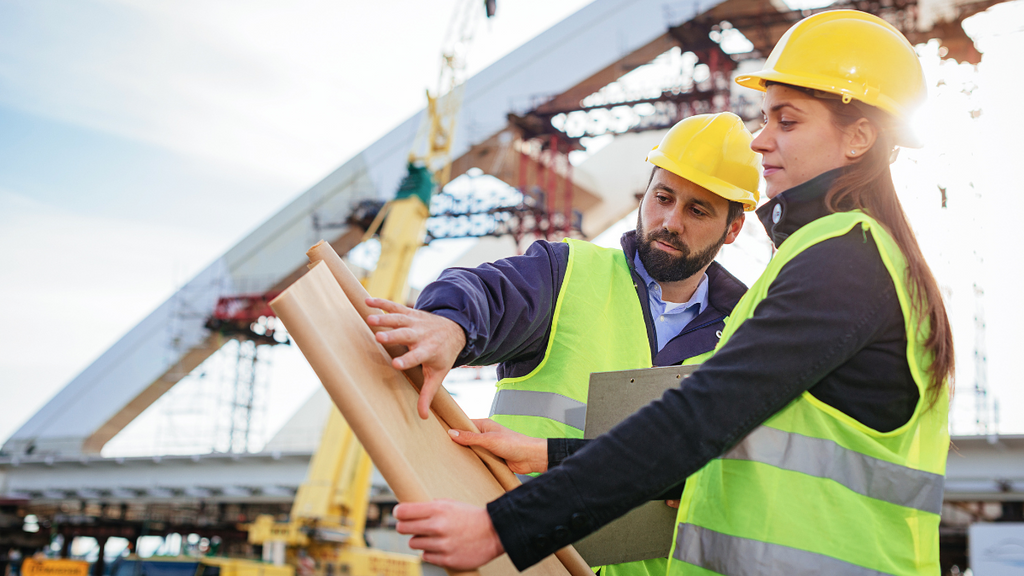8 Easy Facts About Geotheta Described
8 Easy Facts About Geotheta Described
Blog Article
Not known Incorrect Statements About Geotheta
Table of ContentsLittle Known Questions About Geotheta.The Basic Principles Of Geotheta Geotheta Fundamentals ExplainedThe Single Strategy To Use For Geotheta7 Simple Techniques For Geotheta

They carry out site investigations, collect examples, carry out lab tests, and evaluate information to review the viability of the ground for building and construction projects - Geotechnical Engineers. Based upon their searchings for, geotechnical designers supply recommendations for foundation style, incline security, preserving structures, and mitigation of geotechnical threats. They work together with various other professionals, such as architects, structural designers, and construction teams, to make sure that geotechnical factors to consider are integrated right into the general project style and application
By analyzing the behavior and residential or commercial properties of soil and rock, they can identify possible geotechnical risks such as landslides, dirt negotiation, or slope instability. Their experience assists stop failures or mishaps that might threaten lives and property. Below are some thorough responsibilities and obligations of a geotechnical designer: Site Examination: Geotechnical engineers conduct website investigations to gather information on subsurface conditions.
They analyze the data to recognize the properties and habits of the soil and rock, including their strength, leaks in the structure, compaction characteristics, and groundwater conditions. Geotechnical Analysis and Design: Geotechnical designers assess the data collected throughout site examinations to assess the security and viability of the website for construction jobs. They carry out geotechnical computations and modeling to review variables such as bearing ability, negotiation, slope security, side earth stress, and groundwater flow.
Little Known Questions About Geotheta.
Structure Style: Geotechnical designers play a vital function in developing structures that can securely support the designated framework. They analyze the dirt problems and load needs to establish the suitable structure kind, such as superficial structures (e.g., footings), deep foundations (e.g (https://ameblo.jp/geotheta/entry-12862281966.html)., piles), or specialized methods like soil improvement. They think about aspects such as negotiation restrictions, bearing capability, and soil-structure interaction to develop optimum foundation designs
They assess construction plans, monitor website tasks, and perform field assessments to confirm that the layout suggestions are followed. If unforeseen geotechnical issues develop, they assess the scenario and provide recommendations for remediation or modifications to the style. Threat Analysis and Reduction: Geotechnical engineers evaluate geotechnical threats and threats linked with the job site, such as landslides, liquefaction, or soil disintegration.

Cooperation and Interaction: Geotechnical designers function very closely with various other specialists associated with a project, such as designers, structural engineers, and construction teams. Reliable interaction and collaboration are vital to integrate geotechnical considerations into the overall task layout and building procedure. Geotechnical designers provide technological expertise, answer queries, and make sure that geotechnical demands are satisfied.
The 25-Second Trick For Geotheta
Below are some sorts of geotechnical engineers: Structure Designer: Foundation designers specialize in making and analyzing foundations for structures. They evaluate the dirt problems, lots demands, and website qualities to identify the most suitable structure kind and layout, such as superficial foundations, deep foundations, or specialized techniques like heap structures.
They examine the elements affecting incline stability, such as soil properties, groundwater problems, and slope geometry, and create methods to prevent slope failings and minimize threats. Quake Engineer: Quake designers concentrate on analyzing and making frameworks to endure seismic pressures. They assess the seismic risk of a website, evaluate soil liquefaction capacity, and develop seismic layout requirements to make certain the security and resilience of structures throughout earthquakes.
They carry out area testing, accumulate samples, and examine the gathered information to define the soil residential or commercial properties, geologic developments, and groundwater conditions at a website. Geotechnical Instrumentation Engineer: Geotechnical instrumentation engineers focus on surveillance and gauging the behavior of soil, rock, and structures. They mount and maintain instrumentation systems that keep an eye on aspects such as soil settlement, groundwater levels, slope motions, and structural variations to evaluate performance and provide early cautions of potential concerns.
Getting My Geotheta To Work
They carry out tests such as triaxial tests, consolidation tests, straight shear tests, and permeability examinations to collect information for geotechnical analysis and style. Geosynthetics Engineer: Geosynthetics engineers specialize in the layout and application of geosynthetic products, such as geotextiles, geogrids, and geomembranes. They utilize these materials to enhance dirt stability, reinforce inclines, give drain options, and control erosion.
They have a tendency to be investigative people, which indicates they're intellectual, reflective, and investigative. They click here now are interested, systematic, rational, analytical, and logical. A few of them are also social, meaning they're kind, charitable, participating, patient, caring, handy, empathetic, sensible, and pleasant. Does this seem like you? Take our cost-free career examination to discover out if geotechnical engineer is one of your leading profession matches.
In the office atmosphere, geotechnical engineers utilize specialized software devices to perform computations, create designs, and examine data. They prepare reports, review task specifications, connect with customers and group members, and coordinate task tasks. The office setting gives a favorable setting for study, analysis, and partnership with other specialists associated with the project.
Geotheta Can Be Fun For Everyone
They often check out job websites to carry out site examinations, analyze geotechnical conditions, and collect data for analysis. These sees involve traveling to different locations, often in remote or difficult surfaces. Geotechnical designers may do dirt sampling, conduct examinations, and screen building and construction tasks to make certain that the geotechnical aspects of the project are being executed appropriately.
Geotechnical designers also function in specialized geotechnical research laboratories. Geotechnical laboratory engineers function thoroughly in these environments, taking care of testing equipment, operating instruments, and videotaping data.
Report this page